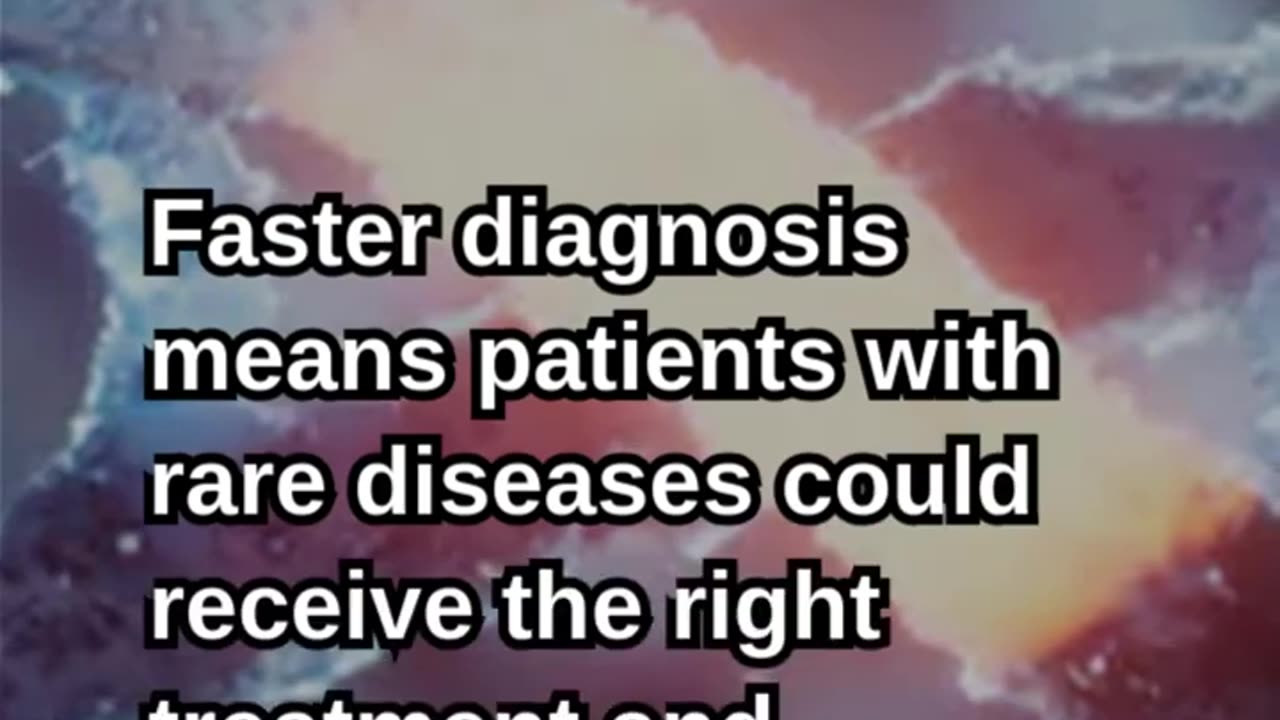Premium Only Content

AI Model Promises Faster and More Accurate Rare
A new AI model is making waves in the medical community by promising faster and more accurate diagnoses for rare diseases, a field that has long posed significant challenges for clinicians.
Go here to find out what tools we are using each day to be successful in our business.
https://versaaihub.com/resources/
https://versaaihub.com/media-and-entertainment/
https://www.instagram.com/versaaihub/
https://x.com/VersaAIHub
https://www.youtube.com/@VideoProgressions
https://www.youtube.com/@MetaDiskFinancial
Rare diseases, affecting millions worldwide, are often difficult to diagnose due to their low prevalence, overlapping symptoms, and limited data. Traditional diagnostic processes can take years, resulting in delayed treatment and prolonged patient suffering. This new AI technology aims to change that by leveraging advanced machine learning algorithms to analyze complex medical data more efficiently than ever before.
The model works by integrating multiple sources of patient information, including genetic data, clinical records, lab results, and imaging studies. By identifying subtle patterns and correlations that may elude human observation, the AI can generate highly accurate diagnostic predictions. In early clinical trials, the system demonstrated a significant reduction in time-to-diagnosis while increasing diagnostic accuracy for conditions that are notoriously difficult to detect. This has the potential to not only accelerate care but also reduce the costs associated with prolonged diagnostic testing.
One of the key advantages of the AI model is its ability to learn continuously. As more patient data is added, the system refines its predictive algorithms, making it increasingly precise over time. This adaptive capability is especially important in rare diseases, where limited historical data often hampers traditional diagnostic tools. Additionally, the AI’s predictive insights can assist clinicians in determining optimal treatment pathways, helping to personalize patient care and improve outcomes.
Beyond direct patient care, the AI technology has broader implications for research and public health. By aggregating and analyzing rare disease data on a global scale, researchers can identify previously unknown patterns, discover potential therapeutic targets, and streamline the development of new treatments. Furthermore, the system may serve as a valuable resource for training medical professionals, equipping them with data-driven insights that enhance their diagnostic skills.
While the technology is promising, experts caution that it is meant to assist rather than replace medical professionals. Ethical considerations, data privacy, and the need for human oversight remain critical. Regulatory approval processes and rigorous clinical validation will determine how and when this AI tool can be widely implemented.
In summary, this innovative AI model represents a significant step forward in the diagnosis and management of rare diseases. By reducing diagnostic delays, improving accuracy, and supporting research, it holds the potential to transform care for patients who have long faced uncertainty and limited treatment options.
Go here to find out what tools we are using each day to be successful in our business.
https://versaaihub.com/resources/
https://versaaihub.com/media-and-entertainment/
https://www.instagram.com/versaaihub/
https://x.com/VersaAIHub
https://www.youtube.com/@VideoProgressions
https://www.youtube.com/@MetaDiskFinancial
#AIHealth, #RareDiseaseAI, #MedicalInnovation, #HealthcareTech, #MachineLearning, #DiagnosticAI, #Genomics, #AIinMedicine, #HealthTech, #PatientCare, #PrecisionMedicine, #ClinicalAI, #MedicalResearch, #DiseaseDetection, #AIForGood, #HealthcareInnovation, #PersonalizedMedicine, #MedicalAI, #FastDiagnosis, #FutureOfHealthcare,
-
 0:52
0:52
WFH University
1 day agoUber Backs AI Robot Maker Serve Robotics
17 -
 56:36
56:36
The Rubin Report
3 hours agoTense Moment at Trump-Mamdani Meeting That No One Predicted
31.1K38 -
 9:34
9:34
The White House
3 hours agoFirst Lady Melania Trump Welcomes the Official 2025 White House Christmas Tree
21.2K14 -
 LIVE
LIVE
LFA TV
16 hours agoLIVE & BREAKING NEWS! | MONDAY 11/24/25
2,341 watching -
 1:01:32
1:01:32
VINCE
5 hours agoNew Info Blows the Lid Off The Butler Assassination Attempt | Episode 175 - 11/24/25 VINCE
240K219 -
 1:46:29
1:46:29
The Mel K Show
3 hours agoMORNINGS WITH MEL K - A Time to Choose: The People Must Reclaim Power 11-24-25
22.1K4 -
 1:23:10
1:23:10
The Shannon Joy Show
2 hours agoMarjorie Taylor Greene DUMPS Trump, Defects To ‘America First’ Setting Up NEW Paradigm For 2028 Presidential Election
15.7K8 -
 53:41
53:41
Grant Stinchfield
20 hours ago $2.12 earnedABC SETUP: Michael McCaul Falls for Martha Raddatz Trap on Live TV!
13.1K1 -
 2:00:33
2:00:33
Nikko Ortiz
4 hours agoWorst Military Events And War Crimes... | Rumble LIVE
21.6K1 -
 17:27
17:27
We Got Receipts
4 hours agoAntifa Getting Arrested In The Funniest Ways!
25.4K14